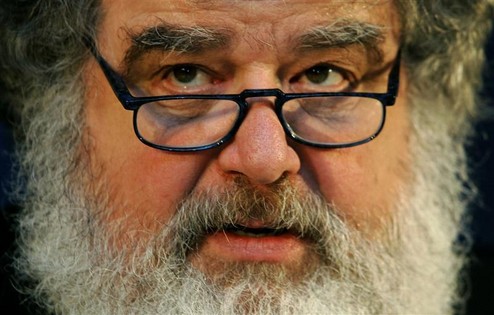By Andrew Warshaw
July 13 – Love him or loathe him, no-one can deny Chuck Blazer his legendary place in the annals of football politics. The burly American, whose admissions of guilt set off the corruption scandal that heaped disgrace on FIFA, has died aged 72 after battling cancer and other illnesses, bringing to an end one the most colourful and controversial careers in the history of the sport.
For 16 years, Blazer, larger than life both literally and figuratively, strode the corridors of power as one of the most influential figures on FIFA’s decision-making executive committee and the number two official in CONCACAF, living an extravagant jet-set lifestyle with a reputation as the ultimate deal-maker.
Such was the fortune he amassed that he reportedly had two sumptuous apartments in Trump Towers in New York – one for him and allegedly the other for his cats. He even had a pet parrot.
With his huge girth, outgoing personality and no little charm, Blazer was instantly recognisable (not least at the now-infamous Baur au Lac hotel in Zurich where he was a regular guest) with a canny ability to woo the international media to whom he was frequently approachable – though only when it suited him.
Blazer may have portrayed himself as a paragon of fair play and the consummate socialite (he kept a blog detailing his meetings with dignitaries and celebrities from all walks of life) but behind the scenes the reality could not have been more different as authorities uncovered more than a decade of unpaid taxes.
In 2013, his reputation shattered, a disgraced Blazer pleaded guilty to racketeering, wire fraud and money laundering. According to a transcript of his guilty plea, Blazer and others in FIFA agreed to accept bribes in the bidding process for the 1998 World Cup in France and the 2010 World Cup in South Africa.
The rest, as they say, is history.
When his misdemeanours were uncovered Blazer was given two options: either be thrown into jail or help with the US-led investigation into football’s biggest ever corruption scandal. As part of his plea agreement, he agreed to cooperate and the evidence he provided helped snare a raft of other senior FIFA personnel, starting with that dramatic dawn raid in Zurich in 2015.
The fact that Blazer’s case never came to trial (although he pleaded guilty to 10 charges carrying a maximum concurrent imprisonment term of 75 years he was given immunity from prosecution) will cause consternation among his enemies but in recent months, as he closed down communication channels, his health deteriorated badly.
As for his legacy, he can certainly lay claim to have used his marketing skills to put football in the United States on the map like never before (he was personally responsible for creating the Gold Cup), but sadly that will overshadowed by enriching himself at others’ expense and misleading so many of those he came into contact with.
Indeed, a CONCACAF investigation report released a few years ago revealed Blazer, who was later banned for life by FIFA, had “misappropriated CONCACAF funds to finance his personal lifestyle,” causing the organisation to “subsidise rent on his residence in the Trump Tower in New York; purchase apartments at the Mondrian, a luxury hotel and residence in Miami; sign purchase agreements and pay down payments on apartments at the Atlantis resort in the Bahamas.”
The report said he had received more than $20.6 million in commissions, fees and rental payments from the organisation between 1996 and 2011.
The sad reality is that Blazer’s own conduct was as corrupt as the actions of those he had pointed the finger at whilst in power, not least former FIFA presidential candidate Mohamed bin Hammam, the one-time Asian football leader who Blazer exposed as the central figure in the 2011 cash-for-votes scandal.
In a statement announcing his death, Blazer’s lawyers understandably attempted to paint as positive a picture of his contribution as possible.
“Chuck hoped to help bring transparency, accountability and fair play to CONCACAF, FIFA and soccer as a whole,” the statement said.
“Chuck also accepted responsibility for his own conduct by pleading guilty and owning up to his mistakes. Chuck felt profound sorrow and regret for his actions. His misconduct, for which he accepted full responsibility, should not obscure Chuck’s positive impact on international soccer.”
The biggest impact, however, was surely in becoming a secret FBI informant over many years. Partly as a result of that, to date more than 40 individuals and entities have been charged, most notably Jack Warner, the notorious former CONCACAF president with whom Blazer worked for years and who has been cited as allegedly one of the biggest culprits in the entire corruption scandal.
Warner continues to fight extradition from his native Trinidad and Tobago but even he is not the highest-profile figure to have been directly or indirectly affected by Blazer’s evidence.
Sepp Blatter, FIFA president at the time of the original arrests two years ago, may not have been one of those charged (though he was later banned over the so-called “disloyal payment” made to Michel Platini) but resigned shortly afterwards in the face of mounting pressure, his organisation having been brought to its knees.
Contact the writer of this story at moc.l1745189692labto1745189692ofdlr1745189692owedi1745189692sni@w1745189692ahsra1745189692w.wer1745189692dna1745189692

